
Five teams walked away with prizes from the Neo APAC GAS Station that took place on Sep. 9 and 10 in Singapore. The GAS Stations were in-person events in five regional cities that hosted workshops and hacking sessions.
Acel and Card Brawl were the Neo Excellence Award winners in the DeFi and Payment and NFT and Gaming categories, respectively. Each team was awarded US $5,000 and will receive additional $1,000 travel grants for the APAC Hackathon grand finale in Hong Kong.
NeoWizard and ChatyN were recipients of AWS Awards and were rewarded $5,000. Finally, Insightic received a Securr Choice Award, which came with a $2,500 prize.
The finale, dubbed Neo Era, will occur at CyberPort in Hong Kong on Oct. 27 and 28. At the finale, participants will compete in one of five categories for a chance to win $10,000 and incubation support. The categories include DeFi and Payment; NFT and Gaming; AI, Social, and DAO; Infrastructure and Tooling; and General.
Participants may still enter projects online without visiting a GAS Station and be eligible for a grand prize. Online submissions are open until Oct. 20.
Excellence Winner: Acel
Acel seeks to streamline Web3 payment processes by creating a similar experience to PayNow or PayLah, online services heavily used in Singapore to make payments, complete purchases, and send money. Though third-party apps, they’re natively integrated with the real-time payment system developed by the Association of Banks in Singapore.
The Acel team is based predominantly out of Singapore, where the two founders, Fan Tianyu and Wang Yangming, met at Nanyang Technological University. In a conversation with NNT, Wang said, “Our system serves as an effective solution for merchants, providing a familiar yet innovative infrastructure to process transactions verified on the blockchain, thereby enhancing user trust and reliability.”
Acel was designed to address pain points that reduce payment process speeds, such as slower blockchain transaction confirmation times. Additionally, the team seeks to provide a solution for lengthy, complex addresses, which can be insecure and easy to forget.
Currently, Acel is under development as an Android application that allows users to manage multiple accounts and view transaction and payment histories. The team intends to ensure the Acel system provides an infrastructure that merchants are familiar with while also leveraging the trust and reliability offered by blockchain.
Alongside more “traditional” Web3 methods of sending funds (i.e., via public keys), the platform integrates technologies like NFC tapping, QR code scanning, and pay-to-contact features to simplify the digital asset transfer process.
The Acel team leveraged Neo-CLI and the SDK for the build submission to the GAS Station in Singapore. On Neo’s developer experience, Wang said:
Even as newcomers to Web3 development, the availability of well-documented CLI, REST API, Java, and C# SDKs, along with the NeoVM, enabled us to develop a nearly finished product within a remarkably short span of 24 hours. This has heightened our excitement and anticipation for the potential achievements we can realize on this platform.
The team members are undecided about the aspects they’ll double down on for the grand finale in Hong Kong. However, their ultimate vision seems to be building something that expands beyond a single hackathon. Wang said, “We aspire for our project to revolutionize the Web3 payment landscape by bridging the gap between traditional payment methods and Web3 functionalities.”
Excellence Winner: Card Brawl
Card Brawl is a digital trading card game where users collect cards to deploy in battles against the computer and one another. The team wants the game to bridge the gap between Web2 and Web3 through an entertaining experience. Card Brawl was inspired by Slay the Spire, a highly acclaimed deck-building game released in 2017.
The team comprises nine members and was co-founded by Nicholas Zhou and Liu, who’d worked together on a previous project. Individually, they met through various networks, including working with one another at previous gaming companies (such as Gameloft and Tap4Fun) and through university connections.
Card Brawl will implement Roguelike mechanics to captivate the gamer. Roguelike is a subgenre of RPG typically involving turn-based gameplay, grid-based movement, and single-life attempts to complete the level. As the player progresses through the game, they are rewarded for unlocking achievements.
At the time of press, Card Brawl’s foundation and gameplay are about 90% complete. The team primarily focused on integrating the Neo blockchain into the backend for the Singapore GAS Station.
The developers opted to build on the Neo N3 TestNet because they found the network more mature than the DevNet of the NeoEVM sidechain. In a conversation with NNT, Zhou said, “This provided us with a stable environment for development and testing, enabling us to focus on game mechanics and smart contract functionalities. However, we also plan to deploy our contracts on NeoEVM in the future.”
The most alluring part of building on the Neo blockchain was the accessibility the developer tools offered for Web2 developers building in Web3. In particular, the polyglot nature of the NeoVM made it possible for the team to build so quickly. Zhou said:
Unlike other blockchain platforms that require learning a new programming language like Solidity, Rust, or Move; Neo allows us to work with more familiar languages. This made it easier for our development team, who had no prior experience with smart contract development, to get up to speed. Impressively, we were able to learn and deploy three contracts within just two weeks.
In the lead-up to Hong Kong, Card Brawl will continue development on the game’s fundamentals. Ultimately, the team has grander ambitions to serve as a bridge for Web2 users into blockchain ecosystems. The co-founder said, “We hope Card Brawl will make a significant impact by being a first-of-its-kind Roguelike trading card game, not just in the traditional gaming history but also as a major innovation in the Web3 gaming ecosystem. Our ambition is to become one of the most influential games in the Neo ecosystem.”
AWS Choice Award: NeoWizard
NeoWizard is a platform that leverages the Neo blockchain and other decentralized infrastructures to instruct the user on how to solve complex mathematical problems. The Neo Wizard platform is designed to offer a forum where math aficionados can find solutions to arithmetic’s toughest questions. The product was built by a pair of friends: Iris Chen, a co-builder at MoleDAO, and Hongsheng Zhang, a Ph.D. Candidate at Zhejiang University.
In a conversation with NNT, Chen said, “My inspiration comes from the difficulties I encounter when attempting math problems that I can’t find online and my classmates can’t solve. Existing tools are unable to address this issue, so I hope to develop software to tackle this problem as effectively as possible.”
NeoWizard will be designed to offer highly accurate solutions to math problems and automated instructional materials to provide students with a new learning experience. The student will submit an image of the math problem, and the program will generate a course to teach the student to solve the problem. The answer will be stored on a distributed storage network as an NFT.
Chen said, “This feature indicates a focus on maintaining the integrity and value of the knowledge transferred through the platform, making it a potentially valuable resource in the educational sector.”
The duo built on the NeoVM for the hackathon. The team found Neo’s accessibility among the most attractive factors for building on the chain. Chen said, “The extensive documentation was easy to get started with, which surprised me the most as a new developer to the Neo ecosystem. And the user-friendly interface is the cleanest one I have ever seen.”
While the team anticipates leveraging the Arweave distributed storage network, Chen and Zhang have been able to complete payment and signing functionalities on the Neo N3 TestNet. Ultimately, they aim to develop a mathematics ecosystem in Web3 by leveraging Neo.
AWS Choice Award: ChatyN
ChatyN is building a social application that offers a variety of features, such as AI streaming, voice/text chat, token swapping, and more. The platform will leverage decentralized identity solutions to establish a digital graph of how users interact with one another on the platform.
Users can access the platform free of charge, or purchase a dynamic NFT that grants access to more information about ecosystem activity and potential rewards. The dynamic NFTs serve as the user profile and as an onchain DID. They also update as the user interacts with different features and others on the ChatyN platform.
Visit the link below to learn more about ChatyN:
https://www.chatyn.io/
Securr Choice Award: Insightic
Insightic is an established company that builds tools to assess and monitor Web3 projects to reduce costs and streamline decision-making. The core mission of the leadership is to harness AI capabilities to provide compliance solutions tailored to the digital asset industry.
The six-person team is based out of Singapore and brings a wealth of experience. For example, the group has over 100 academic publications in Graph Analytics and Federated Learning.
The Insightic platform is designed to leverage suitability validators to verify that claims mentioned in business documentation (or whitepapers) are accurately executed in smart contracts. In a conversation with NNT, CEO Lu Shengliang said, “We noticed that our clients have a high-cost procedure in reviewing smart contracts. They need to have developers sit side-by-side with lawyers to review code line by line. It’s not for security, but suitability.”
The protocol-agnostic platform is building three services: pre-assessment, smart contract validator, and risk assessment.
The preliminary assessment service examines virtual asset service providers. The screening service leverages AI to perform background checks coupled with de-anonymization techniques. The website states, “This evidence-driven automation is designed not only to substantially minimize manual efforts in preliminary due diligence but also to offer better and more comprehensive coverage across various risk factors.”
The smart contract validator is used to cross-validate smart contracts with a team’s whitepaper. The user uploads a copy of their whitepaper and smart contract code, and the Insightic service will uncover disparities between the two.
The risk assessment performs a comprehensive analysis of a project. The service monitors more than 150 risk factors and uses patent-pending graph analytics tools used in fraud detection, token economic, and DAO assessment frameworks.
The Insightic developers found Neo to provide a good ecosystem and an enjoyable hackathon experience. Looking forward, the team aims to bridge the gap between regulatory requirements and software implementation by refining its current products and offerings.
More information about Insightic can be found at the link below:
https://insightic.io/
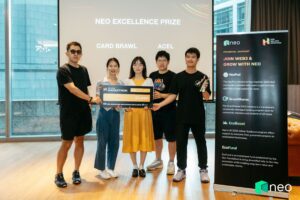
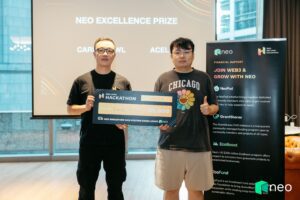
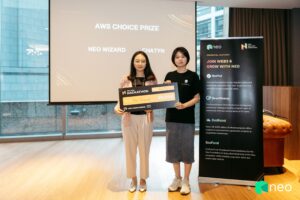
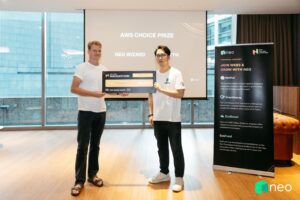
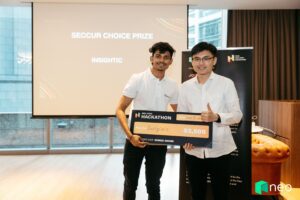





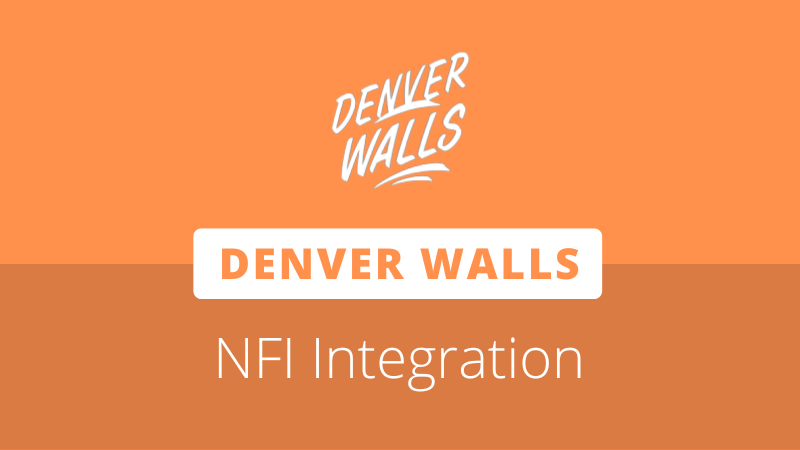
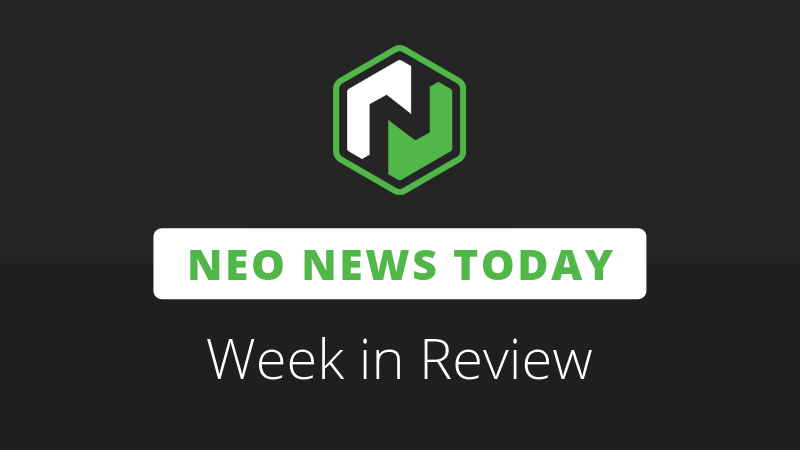
About The Author: Dylan Grabowski
Dylan is a reformed urban planner with a passion for covering the Neo ecosystem. His objective as a writer for Neo News Today is to report news in an objective, fact-based, non-sensational manner. When not behind a computer screen, he can be found in the mountains rock climbing. Find Dylan on Twitter (@GrabowskiDylan).
More posts by Dylan Grabowski